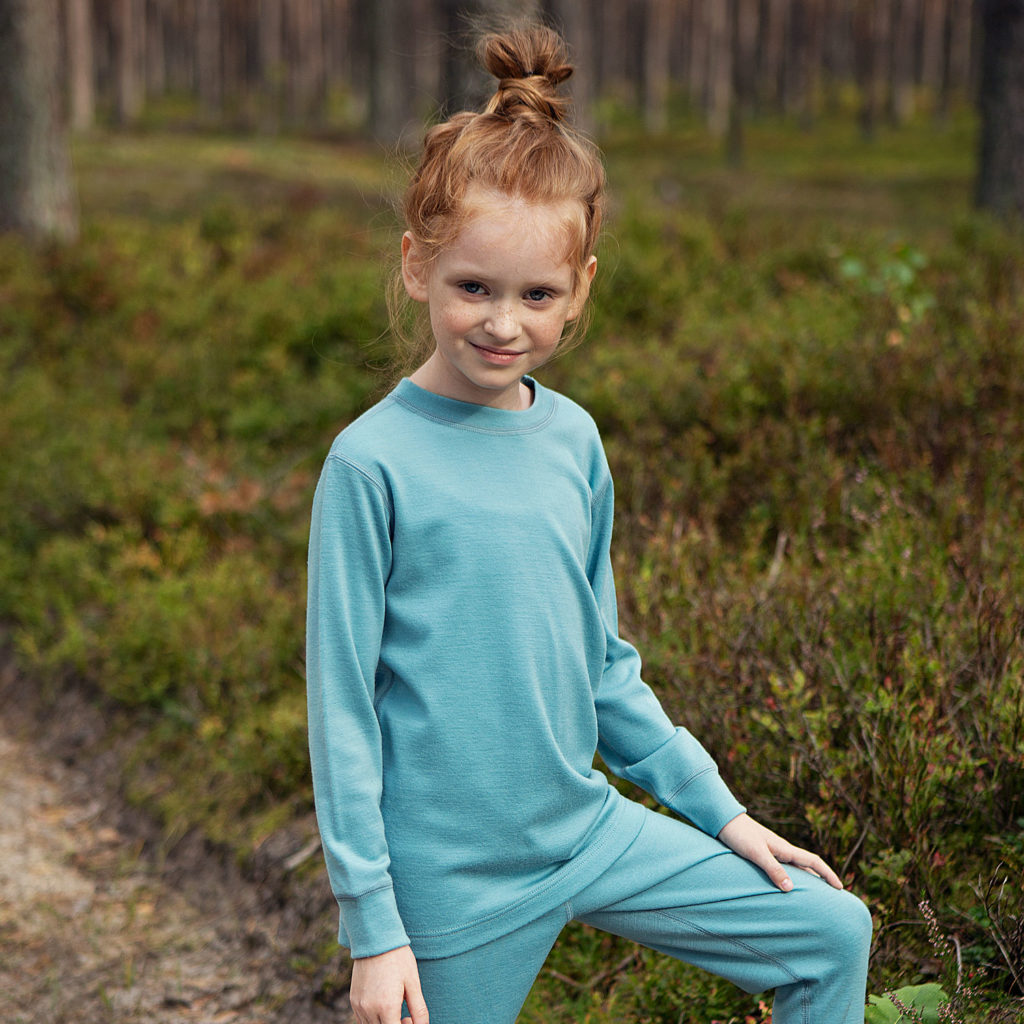Beautifully tactile and incredibly comfy to wear and care for, any Kidsbury merino wool garment is at the top of the game when it comes to comfort and wearability. Merino wool is water-proof and keeps yours and your little one’s skin dry, and its properties will keep you warm when it’s cold outside and cool when it’s too warm outside, which makes merino wool practical all year round.
Did you know that merino wool, the ultra-soft fabric most commonly found in performance baselayers and socks, is one of the most sought-after materials in the outdoor gear world? Yes, in fact, before the synthetic—a much cheaper solution—was invented, it was the number one fabric in sportswear production because of its wonderful properties. But let’s take a step back and have all your questions about merino wool answered.
Where does merino wool come from?
To ensure the finest product possible, the raw material is sourced a year before the garment’s creation. For our partners in Germany, this means selecting the very best farmers in Australia and New Zealand. These regions offer exceptional quality wool and take an ethical, sustainable approach to farming, which is our priority number one. The wool we purchase must adhere to strict specifications, not only to the quality of the fleece but also to the welfare of the sheep, sustainability and the protection of the farmland. After harvesting the wool with the highest attention to detail, it’s then shipped to Germany where the wool fibers are spun into yarn, which then is turned into the fabric from which we cut and sew our soft and comfy kidswear.

Is merino wool really warm?
Absolutely! Merino wool fibers are so fine and light it is an ideal fiber for year-round wear. Even when the air is cold and damp, a molecular process called ‘isosteric heat of sorption’ releases heat, which can be felt by you, the wearer. Of course, all fibers do this but merino wool does it four times as much as nylon and at least double this for polyester. That’s why even you’re wearing just a base layer made of merino wool and just a coat, you feel much warmer (and less sweaty) than when wearing layers and layers of synthetic.
Merino wool effectively traps air, thus insulating your body from the colder climates and keeping it cool when it’s hot (think sheep: you don’t think they’re all sweaty and sad during those scolding hot summers down in NZ, right? Their thick hairs just look uncomfortable; in fact, they are totally fine because the thermoregulation is doing its job just fine). The merino wool creates its own microclimate around the body, acting as a buffer against changing conditions and maintaining higher comfort levels. You never have to worry about any unpleasant sticky sensations as merino wool breathes in warm and cold weather – it’s something that synthetic fibers just can’t do.
Is merino wool itchy?
So, this is the most important question regarding wool. Many of us just can’t wear conventional wool because it’s so itchy and there’s almost nothing that can be done about it. Conventional wool is itchy due to the diameter of the fibers. In wool garments, the fibers are large, broad, and are not too flexible, and this means they’ll often aggravate the skin when pressed up. The fibers simply cannot bend when pressed against the skin, so they feel prickly and itchy.
Merino wool doesn’t have this issue. Your baby won’t feel itchy when wearing Kidsbury merino wool garments because the fibers of the fabric are so much more finer than traditional wool garments. With a small diameter, merino fibers are flexible and they bend when pressed against the skin. This means merino wool feels soft and comfortable when on your body. The fine nature of these fibers allows merino wool to be extremely elastic – the garments made of merino will conform to the body of the wearer making them look relaxed and not boxy and stiff.
How to care for merino wool garments?
First and foremost, please be kind to our planet and avoid harsh chemicals no matter the fabric you and your little one wear. Wash the Kidsbury merino wool knitwear inside out and use a machine washable wool setting, (usually a 30-degree gentle cycle), and a mild detergent. You should avoid biological detergents as they contain enzymes that will attack the wool causing irreparable damage. Do not tumble dry. If you opt for ironing, iron on reverse on medium heat.

Shop Kidsbury organic merino wool garments here





